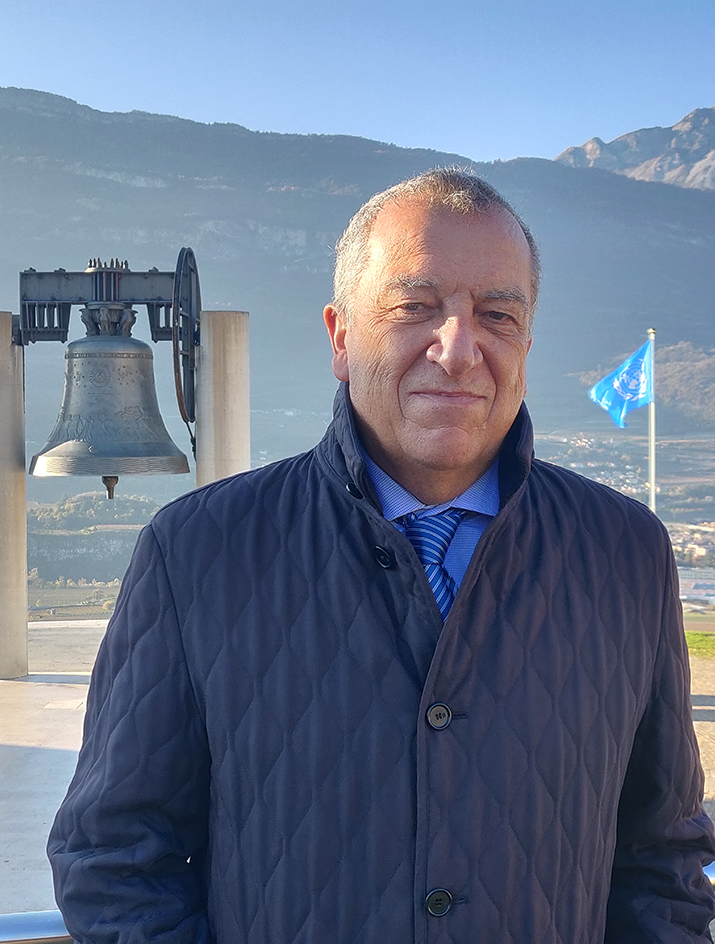Of all the Russian citizens who could represent a real threat to President Putin's iron leadership, until recently, Evghenji Prigozhin appeared by far the least suspicious. And not by chance. A longtime close collaborator and confidant of the "new Tsar", to whom he had guaranteed security for years (and even some refined food), Prigozhin had over time extended his undoubted organizational skills to the military sector. Also, because coupled with a total lack of scruples as well as an equally complete indifference for human life (not including his own), Prigozhin had turned into an invaluable agent of the Kremlin to expand the Russian sphere of influence in the world. His "Wagner militia" had in fact become an indispensable instrument of "all-round" security especially for the presidents of various Middle Eastern and African states (see the May issue of «The Voice of Maria Dolens»), willingly available to barter the protection of their positions (and their possessions) with consenting attitudes towards Moscow, in particular on the occasion of the debates at the UN concerning the Russian/Ukrainian conflict.
It is true that, recently, Putin's ex-chef had taken liberties hitherto unheard of in the Russian political/military context, going so far as to publicly attack his country's military leaders (Defence Minister Shoigu and Chief of Staff Gerasimov) with accusations of manifest ineptitude in the management of the "special operation" launched on February 24, 2022. Accusations, it is emphasized incidentally, that are not entirely unfounded, if we compare the modest results obtained on the ground with the clear Russian superiority in men, means and resources.
Commenting on the well-known events of 24 June, unimaginable until the day before, a deeper reflection leads us to believe that only the "shrewdness" of not having included the head of the Kremlin among the recipients of his anathemas, as well as the intermediation of Belarusian President Lukaschenko, has thus far saved Prigozhin's life. But even so, his personal fate appears truly tied by a thread and the fate of his former troops uncertain between dissolution and incorporation into the regular forces with a condition of heavy subordination.
In the international arena, considering the expected reactions of solidarity with Putin from China, Iran, Qatar and other countries traditionally close to Moscow, it is significant that on both sides of the Atlantic, following this moment of surprise, the very serious insubordination of the head of Wagner has been labelled an «internal Russian affair».
With this unanimous opinion, the EU and NATO capitals not only wished to exclude their direct involvement in the affaire, but also deny that the hypothesis of a regime change in Moscow was ever hypothesized by them, not even in the frantic hours immediately following the “march of the 25,000”.
If this interpretation appears essentially correct, it would also seem erroneous to bring the Russian situation today back to the business-as-usual formula. On the domestic front, following this Saturday at the start of the summer, Putin is no longer unassailable and Prigozhin has scratched, perhaps forever, that public image of invincibility stubbornly cultivated by the former KGB official since the time of the ruthless anti-Chechen repression.
Even against the background of a Ukrainian counter-offensive that is struggling to take off, at least judging by the modest territorial reconquests of the last few weeks, in the 17 months of conflict the current moment appears to be one of the most favourable for recourse to diplomacy, rather than to the protracted use of weapons without any forecast of duration. It is a pity that such an evident principle clashes today, with the objective absence of a negotiating framework accepted by all the parties in conflict, within which to place any form, even the most embryonic, of negotiation. In this regard, we willingly place our trust in the outcomes of the “peace mission” promoted by Pope Francis and interpreted with tact and competence by Cardinal Matteo Zuppi both in Kiev and Moscow, as well as in recent days in Washington, in order to prove us wrong.
Reggente Marco Marsilli, Foundation President








